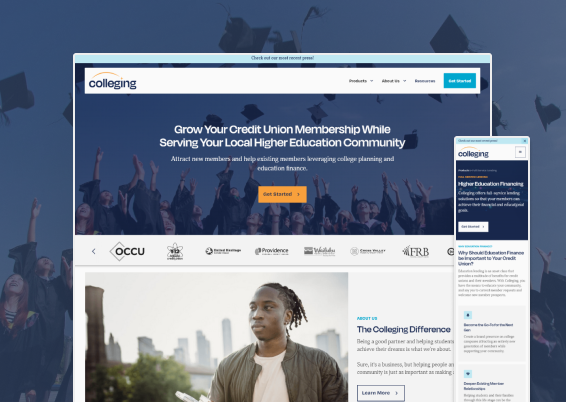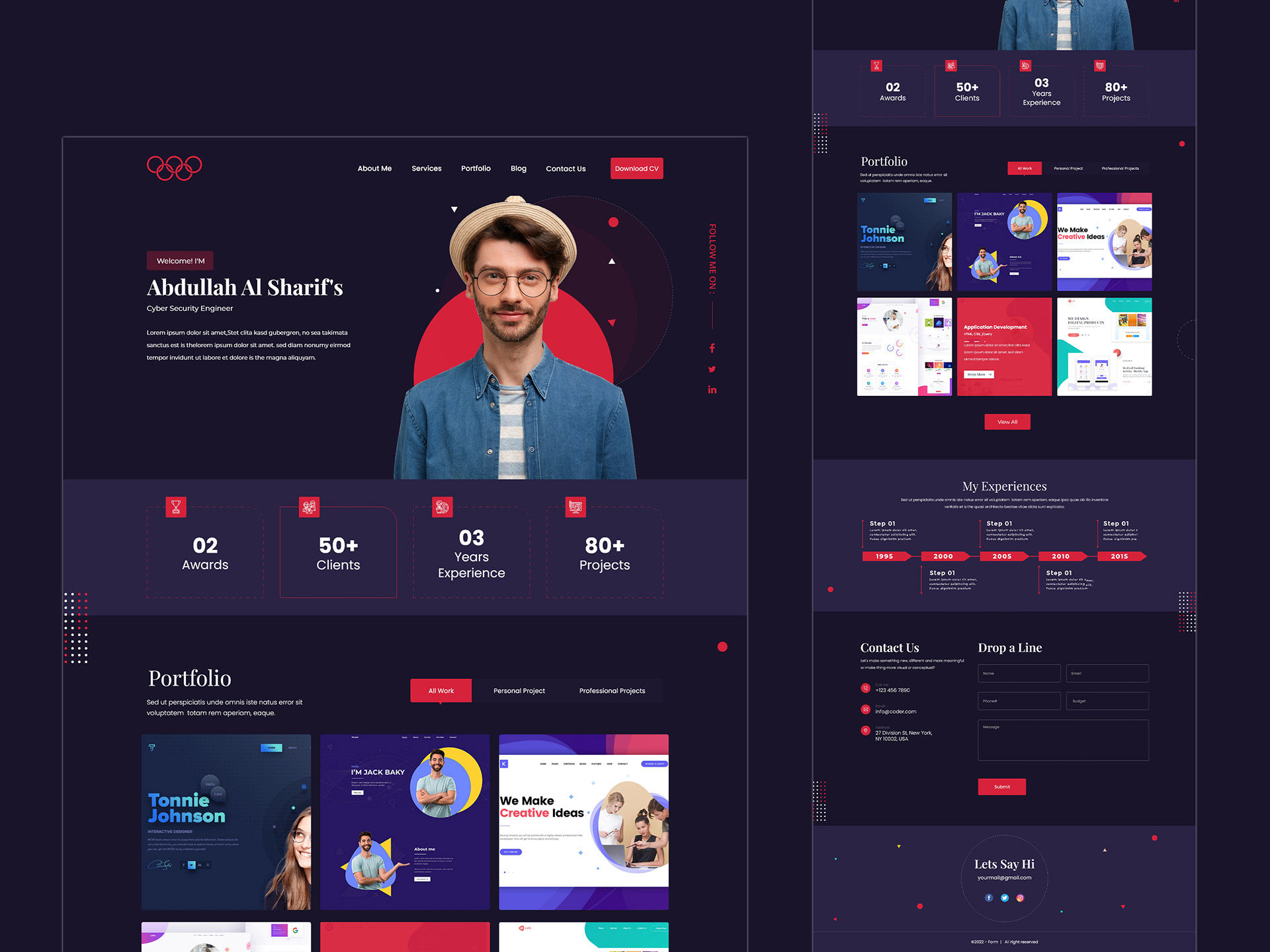Why Professional Website Design is a Key Factor in Your Marketing Strategy
Why Professional Website Design is a Key Factor in Your Marketing Strategy
Blog Article
Essential Tips for Crafting High-Impact Website Designs
In the realm of electronic advertising, the style of an internet site serves as a crucial touchpoint for involving possible clients. To develop high-impact site styles, one have to think about important aspects such as target market understanding, user experience, and visual hierarchy.
Understand Your Target Market

To effectively understand your audience, begin by conducting market analyses to collect data on age, sex, place, and passions - website design. This info offers as a foundation for creating customer personalities, which stand for the vital characteristics of your target audience. These personas overview decision-making in layout components and content approach, guaranteeing positioning with user assumptions
Additionally, analyzing user habits via tools like Google Analytics can reveal exactly how site visitors interact with your site. Metrics such as bounce prices and time on web page can highlight areas that need enhancement or modification. Customer surveys and comments additionally offer indispensable insights right into choices and discomfort points.
Eventually, a deep understanding of your audience is not simply valuable yet necessary. It equips designers to produce even more pertinent, attractive, and functional sites that foster a positive individual experience and drive preferred outcomes.
Prioritize Customer Experience
When designing an internet site, prioritizing customer experience (UX) is extremely important to achieving both customer complete satisfaction and business purposes. A well-crafted UX guarantees that visitors can browse the website effortlessly, find the info they require, and engage with material successfully. To achieve this, it is crucial to embrace a user-centered design technique that involves understanding individual needs, preferences, and behaviors.
Start by conducting comprehensive study, including user surveys and functionality screening, to gather understandings right into how customers connect with your website. This data ought to notify layout decisions, ensuring that formats and attributes align with customer assumptions. Streamlined navigation is important; visitors must be able to situate details rapidly without unneeded clicks or confusion.
Additionally, think about the filling speed of your website. A slow-loading site can lead to high bounce prices, adversely affecting individual experience. Optimize photos and scripts to enhance efficiency.
Last but not least, ensure that your site is accessible to all users, including those with specials needs. Sticking to ease of access criteria not only expands your audience but likewise cultivates inclusivity. By focusing on UX, you lay the structure for an effective site that fulfills both customer needs and service goals.
Embrace Visual Hierarchy
A well-structured aesthetic pecking order plays a substantial role in boosting user experience by guiding site visitors' focus to the most essential elements of a website (website design). By strategically setting up web content, designers can develop a clear course for individuals to comply with, guaranteeing they engage with crucial information properly
To execute aesthetic pecking order, begin by using size and scale. Larger elements naturally draw the eye, making them excellent for headlines or contacts us to action. Enhance this with contrasting shades that highlight key locations, as lively hues can produce centerpieces that record interest.
Furthermore, the placement of aspects on the web page is important. Leading the customer's look through the design can be accomplished by positioning important info at the leading or in the facility, where individuals generally start their aesthetic trip. Incorporating whitespace around components can also boost clarity, making it simpler for customers to process information without really feeling overwhelmed.
Lastly, utilizing typography effectively adds to aesthetic power structure. Various font style sizes, styles, and weights can denote relevance, leading individuals via the content perfectly. By accepting these principles, developers can produce an instinctive experience that cultivates interaction and motivates individuals to check out better.
Optimize for Mobile
Mobile optimization is essential in today's digital landscape, as a considerable section of internet traffic comes from mobile click for more info phones. To guarantee a seamless customer experience, sites need to be made with mobile customers in mind. This involves utilizing responsive website design techniques that adapt the design, photos, and message to fit numerous screen dimensions while maintaining performance and aesthetics.

Touch targets, such as switches and links, have to be appropriately sized, guaranteeing they are quickly tappable without mistakes. Moreover, make sure that article types are mobile-friendly by decreasing input areas and using dropdowns where suitable, streamlining the user experience.
Lastly, test your web site throughout different mobile phones and web browsers to determine any kind of concerns that may impact usability. By prioritizing mobile optimization, you not just boost customer complete satisfaction yet also positively affect your website's search engine ranking, thus attracting more site visitors and boosting general engagement.
Implement Solid Branding
A distinct brand not just separates you from competitors yet likewise cultivates trust and commitment amongst your audience. This identity must be mirrored constantly across all digital touchpoints, including your website, social media, and e-mail communications.
Aesthetic aspects such as logos, shade plans, and typography play a vital role in branding. Pick a color scheme that reverberates with your target market and mirrors your brand name character. Make sure that your logo is flexible and plainly displayed on your site, improving brand name recognition.
Web content is similarly vital; your tone of voice should line up with your brand name identification, whether it's specialist, friendly, or authoritative. Engaging storytelling can additionally reinforce your brand, producing an emotional click site link with customers.
Conclusion
In conclusion, crafting high-impact site layouts demands a diverse method that includes comprehending the audience, focusing on user experience, and accepting visual hierarchy. By integrating these elements, websites can effectively involve users, help with smooth navigation, and foster emotional links that enhance brand name identity.
To develop high-impact web site styles, one should consider essential components such as audience understanding, customer experience, and visual pecking order.When designing an internet site, focusing on user experience (UX) is paramount to achieving both customer fulfillment and business purposes.Start by performing comprehensive study, including individual studies and functionality screening, to collect insights into how customers communicate with your website. To guarantee a smooth user experience, internet sites should be made with mobile individuals in mind.In verdict, crafting high-impact site styles demands a multifaceted strategy that incorporates comprehending the target market, focusing on user experience, and welcoming aesthetic hierarchy.
Report this page